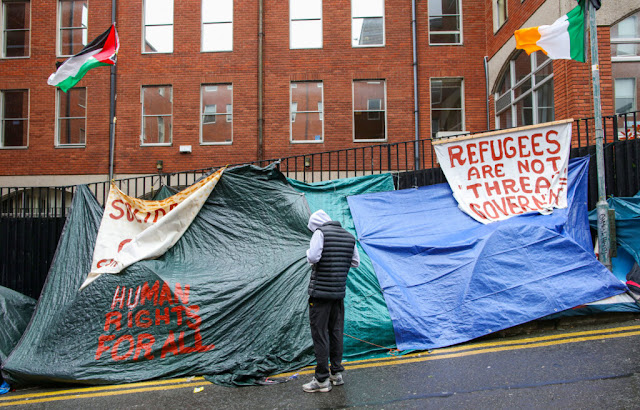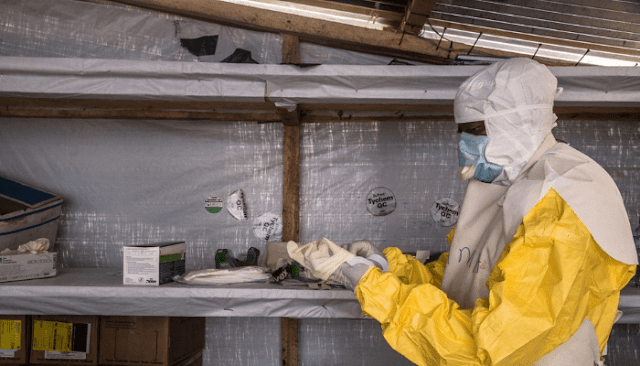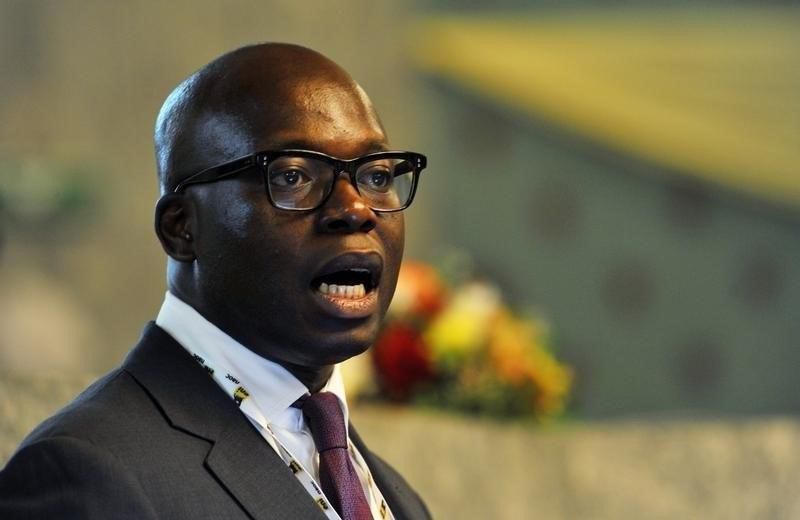In a significant development that highlights the complexities of global migration, Nigerians have emerged as the leading group of asylum seekers in Ireland. This revelation, drawn from recent data, underscores the growing presence of Nigerian nationals seeking refuge in the European nation, reflecting broader trends of migration driven by economic hardship, political instability, and social challenges in Nigeria. The surge in asylum applications from Nigerians raises critical questions about the factors fueling this trend, Ireland’s response to the influx, and the broader implications for both countries and the global migration landscape. This article provides an in-depth exploration of the issue, analyzing the reasons behind the high number of Nigerian asylum seekers, Ireland’s immigration policies, the socio-political context in Nigeria, and the potential consequences for bilateral relations and international migration dynamics.
The Data: Nigerians as Ireland’s Top Asylum Seekers
Nigerians have topped the list of asylum seekers in Ireland, surpassing other nationalities in the number of applications submitted in recent years. While the exact figures for 2025 were not detailed in the report, the trend aligns with broader statistics indicating a significant increase in asylum applications from African countries, with Nigeria leading the way. This development is part of a larger pattern of migration to Ireland, a country that has historically been a destination for immigrants due to its economic opportunities, political stability, and relatively welcoming immigration policies compared to other European nations.
Ireland’s Department of Justice and the International Protection Office (IPO) manage asylum applications, processing thousands of claims annually. In recent years, the number of asylum seekers has risen steadily, driven by global conflicts, economic disparities, and human rights concerns. Nigerians, in particular, have accounted for a substantial portion of these applications, with many citing persecution, economic hardship, or insecurity as reasons for seeking refuge. The prominence of Nigerians in Ireland’s asylum statistics is notable, given that Ireland is not traditionally a primary destination for African migrants, who often target larger economies like the United Kingdom, Germany, or France.
The reasons behind this trend are multifaceted, involving a combination of push factors in Nigeria and pull factors in Ireland. Understanding these dynamics requires a closer look at the socio-political and economic conditions in Nigeria, as well as Ireland’s role as an emerging hub for asylum seekers within the European Union.
Push Factors: Why Nigerians Are Seeking Asylum
Nigeria, Africa’s most populous nation with over 200 million people, faces a myriad of challenges that drive migration, including asylum-seeking. These challenges can be broadly categorized into economic, security, and social factors, each contributing to the decision of thousands of Nigerians to seek better opportunities or safety abroad.
Economic Hardship
Nigeria’s economy, despite its vast oil wealth, has struggled with systemic issues such as corruption, mismanagement, and over-reliance on crude oil exports. The country has faced persistent economic challenges, including high unemployment rates, inflation, and a lack of opportunities for its burgeoning youth population. According to recent estimates, over 40% of Nigerians live below the poverty line, and youth unemployment hovers around 30%. For many, particularly young people, the prospect of economic stability in Nigeria appears bleak, prompting them to seek opportunities elsewhere.
While economic hardship alone does not typically qualify for asylum under international law, which requires evidence of persecution or a well-founded fear of harm, many Nigerians combine economic motivations with claims of persecution or insecurity. Ireland, with its growing economy and demand for labor in sectors like technology, healthcare, and services, presents an attractive destination for those seeking to escape poverty and build a better future.
Insecurity and Violence
Security challenges in Nigeria have been a significant driver of migration. The country faces multiple crises, including the Boko Haram insurgency in the northeast, banditry and kidnapping in the northwest, separatist agitations in the southeast, and communal clashes in the central region. Boko Haram’s campaign of terror, which has displaced millions and killed thousands since 2009, has created a humanitarian crisis in northern Nigeria, forcing many to flee their homes. Similarly, widespread banditry and kidnapping for ransom have made daily life precarious for countless Nigerians, particularly in rural areas.
These security threats provide a basis for asylum claims, as many Nigerians can legitimately argue that they face persecution or danger due to their ethnicity, religion, or political beliefs. For instance, Christians in northern Nigeria may cite persecution by extremist groups, while individuals from conflict-prone regions can point to generalized violence as a reason for seeking refuge. Ireland’s asylum system, which evaluates claims based on the 1951 Refugee Convention, recognizes such threats as valid grounds for protection, making it a viable destination for those fleeing insecurity.
Social and Political Factors
Beyond economic and security concerns, social and political issues also contribute to Nigeria’s high asylum numbers. Nigeria’s political landscape is marked by allegations of corruption, electoral irregularities, and human rights abuses, which create a sense of disillusionment among citizens. The 2014 Same Sex Marriage (Prohibition) Act, for example, has been cited as a source of persecution for Nigeria’s LGBTQ+ community, with many seeking asylum abroad due to the law’s harsh penalties, including up to 14 years in prison for same-sex relationships. Ireland, known for its progressive stance on social issues, including its legalization of same-sex marriage in 2015, is seen as a safe haven for those fleeing such persecution.
Additionally, Nigeria’s ethnic and religious diversity, while a source of cultural richness, also fuels tensions that can lead to displacement. Clashes between ethnic groups, such as the Fulani herders and farmers in the Middle Belt, have displaced thousands, many of whom seek safety abroad. Political repression, including crackdowns on activists and journalists, further exacerbates the sense of insecurity, prompting some to seek asylum in countries like Ireland.
Pull Factors: Why Ireland?
While Nigeria’s challenges provide the push factors for migration, Ireland’s unique attributes serve as pull factors, attracting Nigerian asylum seekers. Several elements make Ireland an appealing destination:
Economic Opportunities
Ireland has emerged as one of Europe’s strongest economies, driven by its technology sector, pharmaceutical industry, and financial services. Companies like Google, Apple, and Pfizer have significant operations in Ireland, creating jobs and attracting a global workforce. For Nigerian asylum seekers, the prospect of accessing these opportunities, even after a lengthy asylum process, is a significant draw. While asylum seekers in Ireland are restricted from working until their claims are processed, those granted refugee status or subsidiary protection can integrate into the labor market, making Ireland an attractive long-term destination.
Progressive Asylum Policies
Ireland’s asylum system, while not without its challenges, is perceived as more accessible than those of other European countries. The International Protection Act of 2015 streamlined Ireland’s asylum process, aiming to provide faster and fairer decisions for applicants. Although backlogs and delays remain a concern, Ireland’s commitment to international refugee obligations makes it a viable destination for those seeking protection. The country’s relatively small population (approximately 5.3 million) and lower volume of asylum applications compared to larger nations like Germany or France mean that individual cases may receive more attention, further appealing to applicants.
Cultural and Historical Ties
Ireland’s historical experience with emigration, particularly during the Great Famine of the 19th century, has fostered a sense of empathy for migrants and refugees. The Nigerian community in Ireland, which has grown significantly in recent decades, provides a support network for new arrivals, helping them navigate the asylum process and integrate into society. Cultural ties, including shared religious practices (many Nigerians are Christian, aligning with Ireland’s historically Catholic identity), also facilitate integration.
Proximity to the UK
Ireland’s proximity to the United Kingdom, where many Nigerians have established communities, is another factor. Some asylum seekers may initially attempt to enter the UK but find Ireland a more accessible destination due to its less stringent border controls or shared travel area with the UK. The presence of family or community networks in both countries further encourages migration to Ireland.
Ireland’s Response: Policies and Challenges
The rise in Nigerian asylum seekers presents both opportunities and challenges for Ireland. The country’s asylum system is designed to process applications in accordance with international law, but the increasing number of claims has strained resources. The Direct Provision system, which provides accommodation, food, and support to asylum seekers while their claims are processed, has faced criticism for overcrowding, inadequate living conditions, and lengthy delays. In recent years, Ireland has taken steps to reform this system, but the influx of applicants, including Nigerians, continues to test its capacity.
Ireland’s government has also faced political pressure to balance its humanitarian obligations with concerns about immigration. While the country has a relatively progressive stance on asylum, public opinion is divided, with some advocating for stricter controls to prevent abuse of the system. The high number of Nigerian applicants has drawn attention, particularly in light of reports suggesting that some claims may be based on economic motivations rather than persecution, which can complicate the assessment process.
In response to these challenges, Ireland has introduced measures to expedite asylum processing and deport those whose claims are deemed unfounded. For example, a June 2025 operation saw 35 Nigerian nationals deported for breaching immigration laws, including five children and nine women, highlighting the government’s willingness to enforce immigration policies. However, such actions have sparked controversy, with human rights groups arguing that deportations may expose individuals to danger in their home countries, particularly in cases involving persecution or insecurity.
Case Study: A Nigerian Deportee’s Appeal
A notable case that underscores the complexities of Nigeria’s asylum seekers in Ireland involves a gay Nigerian man who was deported in June 2025 but later won an appeal to reapply for asylum. According to a report by Visaverge, an August 2025 tribunal found “clear evidence” that the man faced severe danger in Nigeria due to his sexual orientation, granting him the right to reapply for asylum. However, the man, now hiding in Lagos, faces logistical challenges in returning to Dublin within the required timeframe, highlighting procedural and safety obstacles in Ireland’s asylum system.
This case illustrates the legitimate fears of persecution faced by some Nigerian asylum seekers, particularly those from marginalized groups like the LGBTQ+ community. It also underscores the challenges of balancing swift asylum processing with fair and thorough assessments, as Ireland seeks to reform its system to handle growing demand.
Implications for Nigeria-Ireland Relations
The prominence of Nigerians as Ireland’s top asylum seekers has implications for bilateral relations between the two countries. Nigeria and Ireland share relatively cordial diplomatic ties, with cooperation in areas like education, trade, and cultural exchange. The Nigerian community in Ireland, estimated to number in the tens of thousands, contributes to the country’s multicultural fabric, with many Nigerians excelling in fields like medicine, academia, and business.
However, the high number of asylum applications could strain relations if not managed carefully. Nigeria’s government may view the trend as a reflection of its domestic challenges, prompting diplomatic discussions about addressing root causes like insecurity and economic hardship. Ireland, meanwhile, may seek Nigeria’s cooperation in managing deportations and preventing irregular migration, while also exploring ways to support development initiatives that could reduce migration pressures.
Broader Global Migration Trends
The rise of Nigerian asylum seekers in Ireland is part of a broader global migration trend, where economic disparities, conflict, and persecution drive millions to seek refuge in wealthier nations. African migration to Europe has increased in recent years, with countries like Nigeria, Eritrea, and Somalia contributing significant numbers of asylum seekers. The European Union, of which Ireland is a member, faces ongoing debates about how to manage migration while upholding humanitarian principles.
Ireland’s experience with Nigerian asylum seekers also mirrors trends in other countries. For instance, the United Kingdom received 22,619 asylum applications from Nigerians between 2010 and 2024, ranking them 11th among nationalities seeking asylum there. Similarly, Canada has seen a rise in Nigerian asylum seekers, with many citing homophobic persecution due to Nigeria’s anti-LGBTQ+ laws. These trends highlight the global nature of Nigeria’s migration challenges and the need for coordinated international responses.
Addressing the Root Causes
To reduce the flow of asylum seekers from Nigeria, both Nigeria and destination countries like Ireland must address the root causes of migration. For Nigeria, this means tackling insecurity, improving economic opportunities, and strengthening governance to restore public confidence. International support, including development aid and security assistance, could play a role in stabilizing Nigeria and reducing the need for citizens to seek asylum abroad.
For Ireland, managing the influx of asylum seekers requires balancing humanitarian commitments with practical considerations. Investments in the asylum system, including faster processing and better living conditions for applicants, could improve outcomes. Additionally, Ireland could work with Nigeria and other African nations to create legal migration pathways, such as work visas or educational programs, to reduce reliance on asylum routes.
Conclusion: A Call for Compassion and Cooperation
The fact that Nigerians top the list of asylum seekers in Ireland is a testament to the complex interplay of global migration drivers and the challenges faced by both sending and receiving countries. For Nigeria, the trend reflects deep-seated issues that require urgent attention, from insecurity and economic hardship to social inequalities. For Ireland, it presents an opportunity to demonstrate leadership in managing migration humanely while addressing domestic concerns about resource allocation and integration.
As the world grapples with rising migration, the story of Nigerian asylum seekers in Ireland serves as a microcosm of broader challenges. Compassion, cooperation, and innovative solutions will be essential to address the needs of asylum seekers while fostering stability in both Nigeria and Ireland. For now, the Nigerian community in Ireland continues to grow, contributing to the country’s diversity and resilience, even as policymakers navigate the complexities of this evolving migration landscape.







